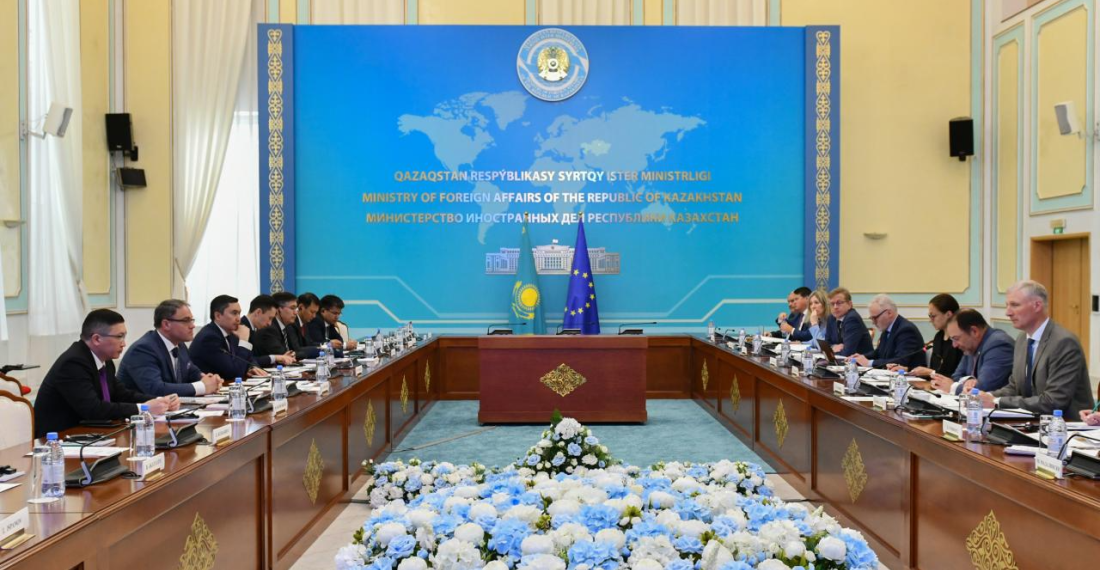Representatives of Kazakhstan and the European Union met in the Kazakh capital Astana on Tuesday (23 May) to discuss the next steps for deeping their partnership at the 20th meeting of their mutual Cooperation Committee.
The meeting was chaired by the Deputy Minister of Foreign Affairs of Kazakhstan, Roman Vassilenko, and Luc Devigne, the Deputy Managing Director for Russia, Eastern Partnership, Central Asia and OSCE from the European External Action Service. Also present at the meeting were representatives of Kazakh ministries and agencies, various directorates of the European Commission, as well as representatives of the diplomatic corps of EU member states.
The Kazakh Ministry of Foreign Affairs reports that the discussion focused on the practical implementation of the Enhanced Partnership and Cooperation Agreement (EPCA) between Kazakhstan and the EU and its member states, which covers 29 areas.
Politics, trade, transport, education, climate change, visa facilitation
Kazakhstan and the EU discussed cooperation in political, trade and economic spheres, the rule of law and human rights, as well as interaction in transport, energy, education and science, environmental protection and combating climate change. Additionally, plans were also outlined to begin consultations on the facilitation of the visa regime for Kazakh citizens.
They also discussed the pratical implementation of the EU-Kazakhstan Cooperation Facility Financing Agreement, signed on 19 May during the 2nd EU-Central Asia Economic Forum, which provides €9m for the implementation of rule of law and sustainable economic growth projects.
Connectivity
Finally, Kazakhstan and the EU also "noted the importance of developing and diversifying transit routes, including the Trans-Caspian International Transport Route (TITR), and its further connectivity with the EU Trans-European Transport Network (TEN-T)".
The European Bank for Reconstruction and Development's study on Sustainable Transport connections between Europe and Central Asia, which was presented on 19 May at the 2nd EU-Central Asia Economic Forum, identified southern Kazakhstan as the most suitable area of focus, as it allowed for "further transport network and regional development by taking a two-layer catchment area approach that spans the territory of all five Central Asian countries and covering most of the major population and production centres of the region".
2022 trade statistics
According to the Kazakh MFA, in 2022, the trade turnover between the EU and Kazakhstan reached $39.9bn, a 38% increase compared to the previous year. In the first third of 2023, trade volume increased by 12.5% on the previous year, exceeding $10bn.
Meanwhile, direct investment from the EU into the Kazakh economy rose by 23% to reach $12.5bn, marking a record high over the past 10 years.






